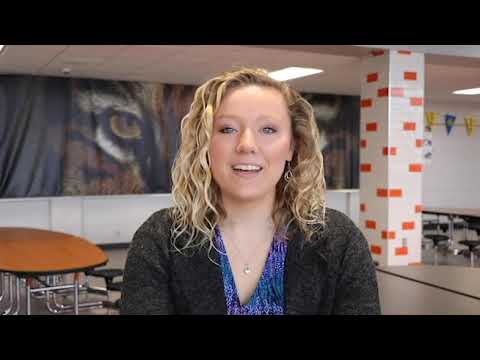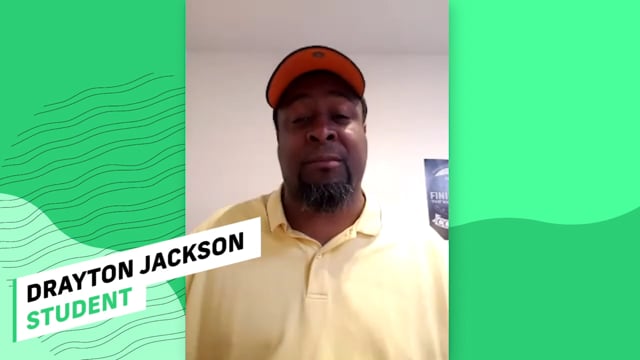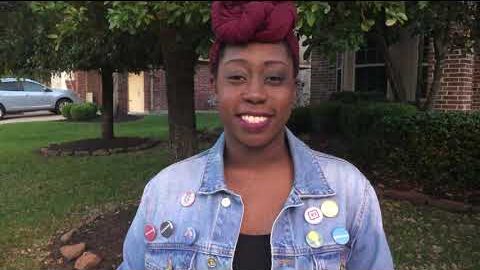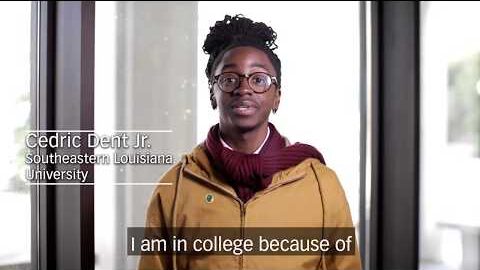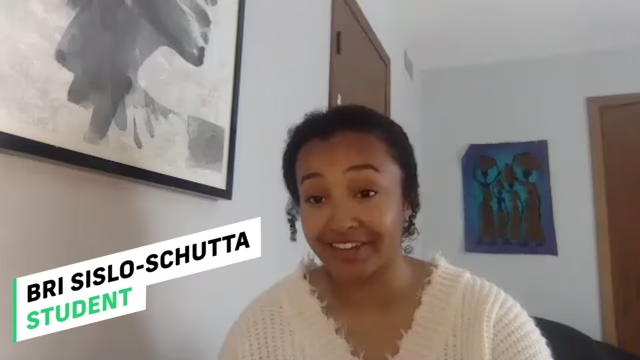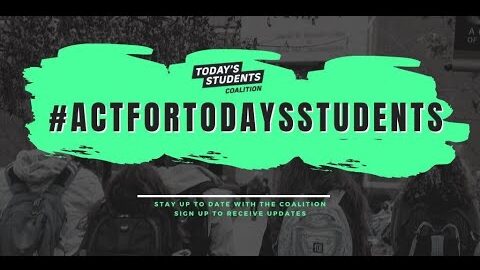Isabella Cowles – Why I Apprentice
Hannah T. Rodriguez – Washington State University
ADVENTURE IS WHERE BELONGING BEGAN: MY FIRST-GENERATION STUDY ABROAD EXPERIENCE This story was originally published…
Contributed by:
Hannah T. Rodriguez – Washington State University
ADVENTURE IS WHERE BELONGING BEGAN: MY FIRST-GENERATION STUDY ABROAD EXPERIENCE
This story was originally published by the Center for First-generation Student Success.
As a first-generation college student, I dreamed of studying abroad. I remember the idea of traveling and studying abroad as early as high school, when I was asked by college recruiters what I wanted to do in college. Studying abroad was high on my to-do list, and college was the place that would help me achieve this dream. Although I had set this goal and created this dream for myself, I never imagined having the opportunity to study abroad the summer after my first year of college.
I come from a low-income, single-parent household. Thinking about paying for college was stressful, and the situation was compounded when I lost my mom while finishing my senior year of high school and had to declare independent status. After that, I never thought that I would be able to pay for a study abroad experience. However, I could not give up on my dream just yet, so I started researching study abroad programs and came across a program specifically for first-generation college students at Washington State University (WSU) called First-Generation Abroad.
The First-Generation Abroad program at WSU provides a high-touch approach to offer an affordable, life-changing experience for first-generation college students like myself. This program brought me across the world to a place I believe to be the most stunning and authentic Spanish city in Spain. I joined 23 fellow first-generation WSU students, along with two traveling advisors, to Seville, Spain for a month. With its narrow and windy streets and close neighboring towns, Seville became my home the moment I arrived. All students were given accomodations in one casa with host parents, who made sure we were always happy, healthy, and well-fed.
Seville gave me more than I could have ever asked for. I fully immersed myself in new experiences: a new city, a new culture, and what became a new home. Within my neighborhood, Los Remedios, each building was different, and many had beautiful balconies with large, open-windowed doors. I woke up to the warm morning sunshine kissing my skin and hearing my fellow students’ footsteps, signaling that breakfast was about to be served and the day had begun. Each day started and ended a little differently, but they held the same promise of adventure and exploration. Many mornings would involve a walk through the heart of Seville, which exhibited the most beautiful shades of red, orange, and tan I had ever seen. Seville’s Cathedral was constantly on display with its intricate details, and every day you would see flocks of people in awe of its beauty.
While walking to class, I readily reflected on the current experience, along with everything that led up to this moment. I experienced feelings of guilt: knowing that I have this amazing experience when my mom never would. I also began to recognize that there are other low-income, first-generation students who may never have this opportunity. I wondered how I could share this experience with my community and how it might impact my career goals. I am majoring in sociology and psychology, with a minor in at-risk youth. After graduation, my goal is to work with other at-risk youths and show them that we are more than a statistic. We are capable and filled with so much potential. By contributing to this field, I want youths to know that they can do things that might feel unachievable now, just like I did. Studying abroad in Seville and working with the department that coordinates the First-Gen Abroad Program opened my eyes to an on-campus service that shares similar goals and is actively working to dismantle the barriers and address the stigma that first-gen students may face. These experiences have encouraged me to embrace where I came from. For many years, I hid my identity as an at-risk youth. Being surrounded by my fellow first-gen travelers who have experienced their own struggles taught me to embrace my own.
I entered the First-Generation Abroad program not knowing the other students or advisors, and I ended that summer with a whole new network of support that showed me how to grow into my first-gen experience and identity. My peers encouraged me to be myself, and the traveling advisors constantly reminded my group that studying abroad was an accomplishment and that the experiences we were having were amazing. Stepping out of my comfort zone and having people believe in me was a big step in my education and growth. I am learning to reject conforming to other people’s notions of who I should be. Instead of focusing on being liked, looking the right way, and saying the correct things, I am learning the importance of accepting who you are. I now interact with students from various backgrounds and share my study abroad experience with them: hoping to give them the feeling of boundless hope that I felt during my summer in Seville.
NC
Fernando Vazquez – Why I Apprentice
Fernando, 19, is a youth apprentice at Guilford Apprenticeship Partners – Machine Specialties, Inc. in…
Contributed by: Jobs for the Future (JFF)
Fernando Vazquez – Why I Apprentice
Fernando, 19, is a youth apprentice at Guilford Apprenticeship Partners – Machine Specialties, Inc. in Greensboro, North Carolina (http://www.machspec.com). Find out why he likes being an apprentice. Fernando is the 2nd Place Winner of JFF’s 2020 “Why I Apprentice” national youth apprentice video competition. “Why I Apprentice” is a national video series that celebrates the stories of youth apprentices. Learn more at https://www.jff.org/whyiapprentice
WA
Drayton Jackson
Drayton is a student parent attending Olympic College. The coronavirus pandemic caused Drayton to have…
Contributed by: Todays Students Coalition
Drayton Jackson
Drayton is a student parent attending Olympic College. The coronavirus pandemic caused Drayton to have to push back his education goals so he could focus more on work and child care.
TX
Christine Mompoint
Christine is a Young Invincibles Texas Advocate.
Contributed by: Young Invincibles
Christine Mompoint
Christine is a Young Invincibles Texas Advocate.
LA
Chris
Chris knew that grocery store wages weren’t going to be enough to support his young…
Contributed by: National Skills Coalition
Chris
Chris knew that grocery store wages weren’t going to be enough to support his young family. A program at Baton Rouge Community College, in conjunction with Exxon Mobil and local contractors, changed his career, and his life.
LA
Cedric Dent Jr.
When his state’s financial aid funds ran out, Cedric had to go to extra lengths…
Contributed by: National College Attainment Network
Cedric Dent Jr.
When his state’s financial aid funds ran out, Cedric had to go to extra lengths to cover his tuition. Let’s fix the financial aid system to help more students make it to and through higher education.
MN
Bri Sislo-Schutta
Bri, a sophomore at University of Minnesota Twin Cities, discusses how coronavirus pandemic is affecting…
Contributed by: Todays Students Coalition
Bri Sislo-Schutta
Bri, a sophomore at University of Minnesota Twin Cities, discusses how coronavirus pandemic is affecting today’s students.
NY
Cat Huang – Cornell University
Cat, a student at Cornell University, discusses how the coronavirus pandemic is causing stress for…
Contributed by: Todays Students Coalition
Cat Huang – Cornell University
Cat, a student at Cornell University, discusses how the coronavirus pandemic is causing stress for today’s students, particularly those receiving financial aid.
MI
Aya Waller-Bey – LEDA Scholar
Georgetown University graduate and LEDA Scholar Aya Waller-Bey discusses her experience as a first-generation student…
Contributed by: Higher Learning Advocates (HLA)
Aya Waller-Bey – LEDA Scholar
Georgetown University graduate and LEDA Scholar Aya Waller-Bey discusses her experience as a first-generation student and navigating the federal student aid application process.
- « Previous
- 1
- 2
- 3
- 4
- Next »

